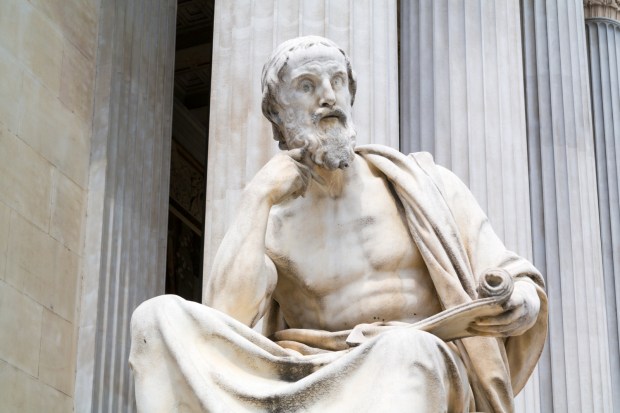
One might say that the study of History as a formal endeavor began 2,400 years ago. Herodotus, the so-called Father of History, sought “to prevent the traces of human events from being erased by time” in his chronicles of the Peloponnesian wars. Herodotus used perspective, context, and narrative to relate the fruits of his inquiries.
These same techniques are the foundation of our work. Facts and data come at us as if from a fire hose, particularly in the digital age. Perspective and context help us determine what is significant and pertinent; narrative is how disparate events and trends and facts can be woven into an understandable story.
The future will be different from the past; the next decade will not be like the last decade. So how does history fit into understanding the future?
First, some processes of change seem to be universal, even though the particulars change. For example, the future may include an energy revolution in which solar technology and battery storage combine to usher in unparalleled access to cheaper energy. But water power and steam power and petroleum are simply earlier examples of energy revolutions which also ushered in unparalleled access to cheaper energy. Same song, new verse.
Second, many times what seems to be entirely novel is truly not. After 9/11 a client told us “never before have we been this fearful and afraid.” The same client, as an elementary teacher, had coached young children how to get under their school desks and cover up to mitigate damage from nuclear war. Remembering the history of the Cuban Missile Crisis helped keep the events of 9/11 in perspective.
Third, human nature persists through every age. History provides a rich tapestry of behavior in action. Thinking about investments, the Tulip Mania in 16th century Holland and the South Sea Bubble in the 18th century provided many clues to the growth mania and technology bubble of the late 1990’s. Those who knew this history, and applied the knowledge properly, had an edge.
My education includes a History degree. When I developed a greater interest in business as an underclassman, I read the Wall Street Journal and the Journal of Commerce every day in the campus library. Not wishing to extend my college years by changing majors, I persisted in the study of History. Now, I would be hard pressed to say which has been more valuable to clients —the reading in the library, or the History degree.
Clients, if you would like to discuss this or any other topic, please email us or call.
The opinions voiced in this material are for general information only and are not intended to provide specific advice or recommendations for any individual.